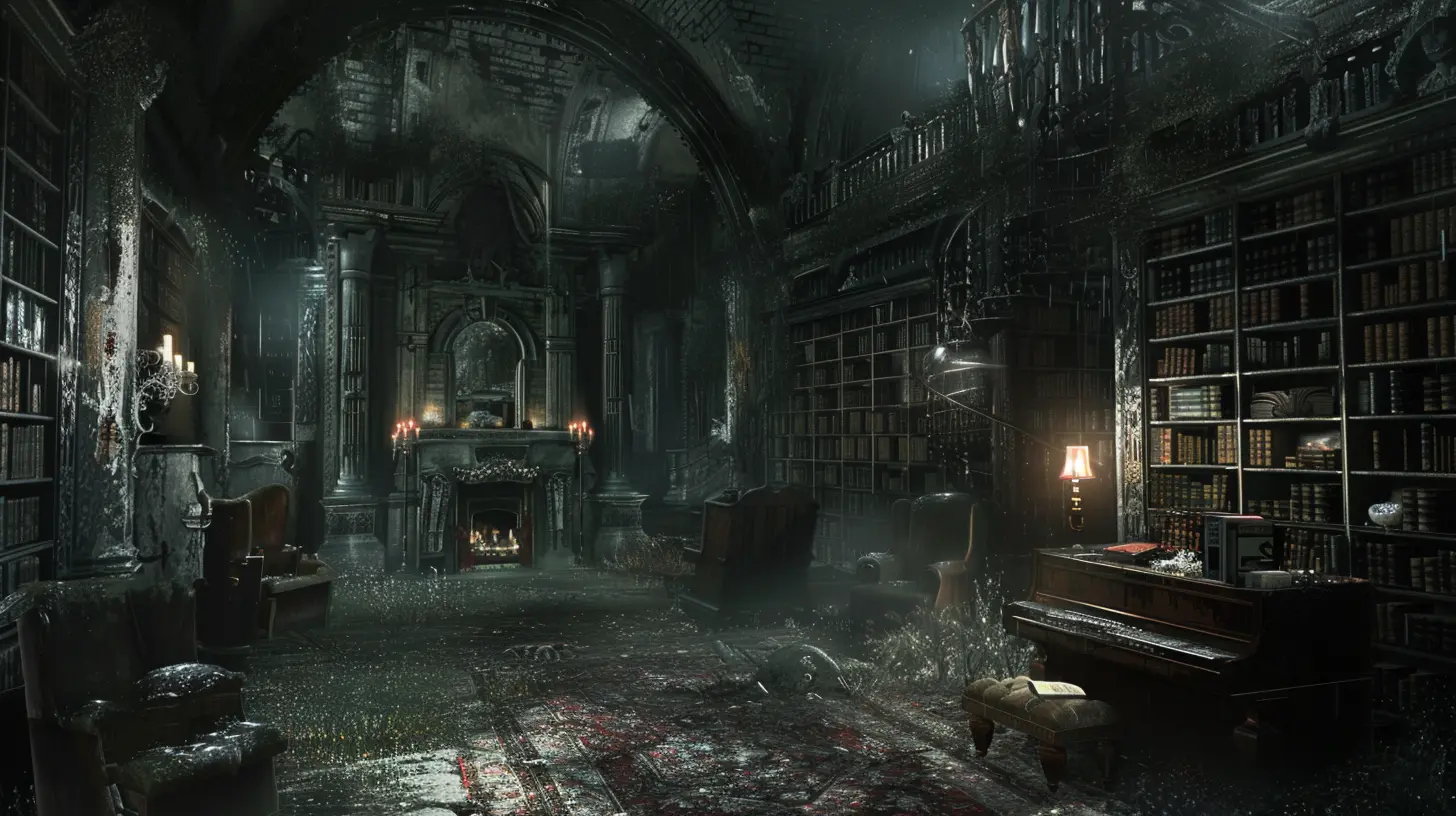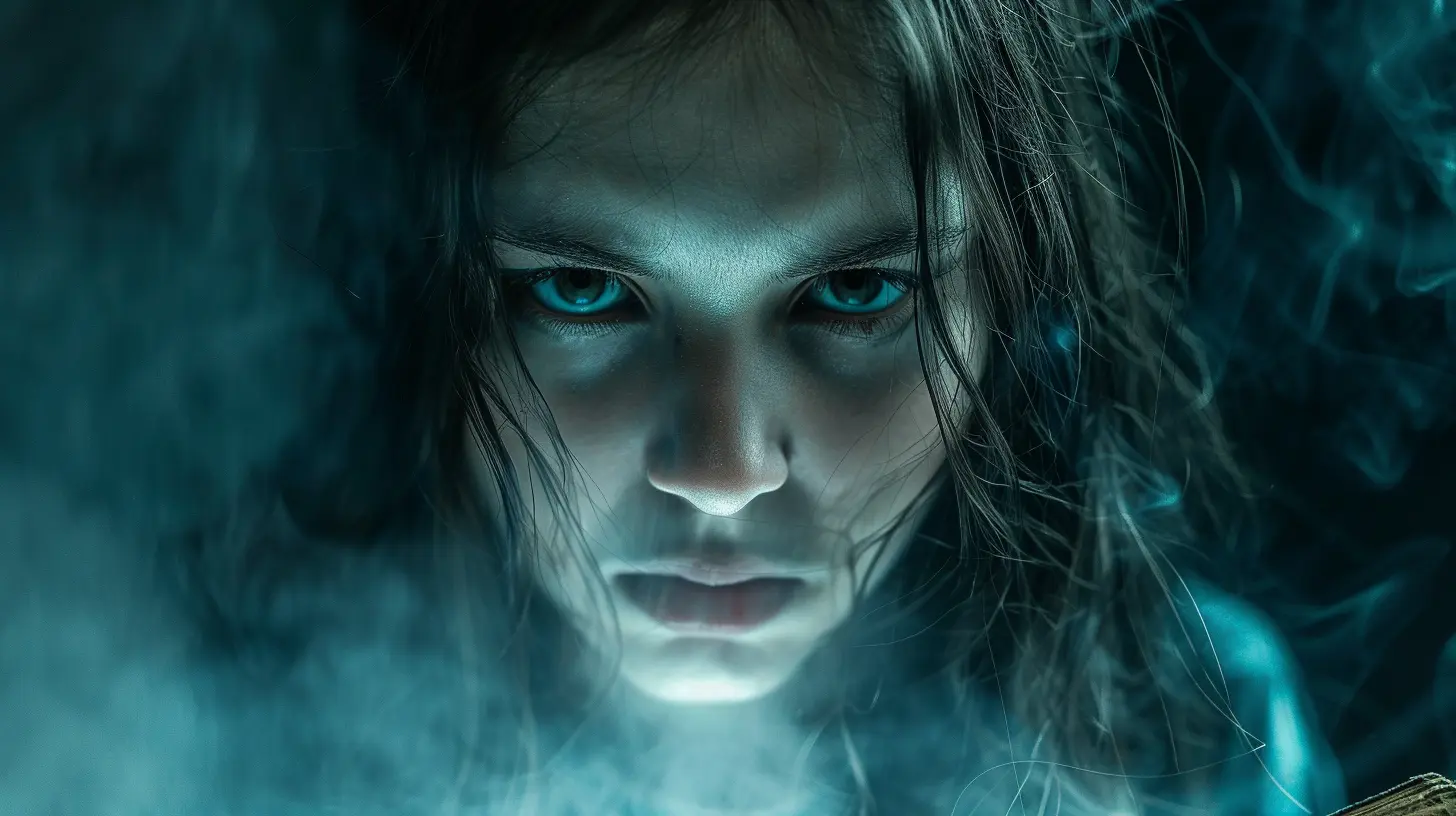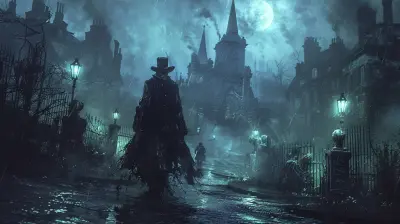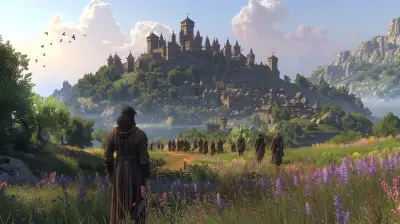Horror Games Adapted from Books: Literature's Influence on Gaming
9 October 2025
When you think about horror games, what comes to mind? Creepy atmosphere, spine-chilling jump scares, and heart-pounding moments, right? There’s something extra terrifying about a game that pulls you into a dark, immersive story. But have you ever stopped to think about where those stories come from? Believe it or not, many of the most haunting and bone-chilling horror games we love to play actually had their roots in books! Yup, literature has a long-standing influence on gaming, especially in the horror genre.
Let’s take a walk through the shadowy corridors of gaming history to explore how literature has helped shape some of the scariest games ever made.
Why Horror Games and Books Are a Perfect Match
You might be wondering—why books? What’s so special about literature that makes it a breeding ground for terrifying games? Well, think about it. Books have been around for centuries, telling tales of fear and suspense long before video games were even a thing. Writers like Mary Shelley, H.P. Lovecraft, and Bram Stoker were masters of weaving eerie stories that could send shivers down your spine.Books excel at building rich worlds, complex characters, and slow-burning dread. And when you pair that with the immersive power of video games, you get the best of both worlds. It's like stepping into a living, breathing nightmare.
The Influence of Classic Horror Literature
Books have done a fantastic job of terrifying readers since, well, forever. Many of these classic horror tales have transitioned from the pages of novels into detailed, interactive experiences in gaming. Let’s look at some standout examples where literature met gaming to spawn iconic horror games.1. The Works of H.P. Lovecraft: A Gateway to Cosmic Horror
When it comes to horror, you can’t ignore H.P. Lovecraft. The man was basically the godfather of cosmic horror, which is all about the fear of the unknown. His books are dripping with eerie, otherworldly vibes, making them the perfect inspiration for horror games.Take Call of Cthulhu for example. Both the 2005 game (Call of Cthulhu: Dark Corners of the Earth) and the more recent 2018 title capture the creepy essence of Lovecraft's works. Players dive into an unsettling world of ancient gods, forbidden knowledge, and madness—themes straight out of Lovecraft’s novels.
And it doesn’t stop there. Games like Bloodborne and The Sinking City are heavily inspired by Lovecraft’s unique style of storytelling. That blend of psychological horror with mind-bending cosmic terror? That’s pure Lovecraft.
2. Frankenstein: A Timeless Tale of Tragedy and Terror
Ah, Mary Shelley's Frankenstein. It's not just a classic—it’s the classic. This 1818 novel gave us one of horror's most iconic figures: the mad scientist and his misunderstood monster. But did you know this tale has also inspired multiple horror games?For instance, The Frankenstein Wars is a story-driven game that twists Shelley’s novel into an interactive narrative. Players make decisions that shape the story, pulling them deeper into this tragic, gothic world. While it may not be packed with jump scares, it channels the existential dread and moral dilemmas that Frankenstein is famous for.
3. Bram Stoker's Dracula: Vampires Before They Were Sparkly
Let’s talk Dracula, shall we? Bram Stoker’s Dracula is the OG vampire tale, full of fear, seduction, and dread. It’s no wonder this classic take on vampires has been adapted into countless movies, shows, and yes—games.One standout is Dracula: Resurrection, an adventure game that pulls players into a creepy, atmospheric world inspired by Stoker's novel. And let’s not forget Castlevania. While it takes plenty of creative liberties, the series owes its existence to Dracula’s legacy.
It’s kind of cool, isn’t it? Literature isn’t just influencing games—it’s evolving them. Stuff like Dracula has left such a massive footprint in gaming that it’s practically become its own sub-genre.
Modern Interpretations: Bringing Books to Gaming Life
While classic literature laid the groundwork, modern authors have also gotten in on the action. Horror books from recent years have similarly found their way into pixelated form.1. Metro 2033: A Novel Turned Nightmare Fuel
Although more of a thriller than strict horror, Dmitry Glukhovsky’s Metro 2033 novel transitioned beautifully into one of the most immersive survival horror games out there. The game plunges you into a post-apocalyptic Moscow metro system crawling with mutants and human enemies. The atmosphere? Absolutely suffocating.Much like the book, the game thrives on psychological tension, moral dilemmas, and a creeping sense of despair that seeps into every shadowed corner of your journey. It’s storytelling at its finest—straight from book to console.
2. The Witcher Series: Monsters and Morals
Okay, maybe The Witcher isn’t a dedicated "horror" game. But hear me out. Andrzej Sapkowski's novels, which inspired The Witcher series, are packed with dark, gruesome, and morally ambiguous tales. The games adapted some of the stranger and more macabre folklore elements, giving us plenty of supernatural horror to chew on.And let’s not forget how freaking eerie some parts of The Witcher 3: Wild Hunt are. Whether it's unraveling sinister curses or facing off against creepy creatures, you can tell it draws plenty of influence from both literary horror and folklore. 
Why Horror Games Benefit from Book-Based Stories
You know what makes book-inspired games stand out? Depth.Games based on literature have an undeniable richness to their storytelling. Horror, in particular, thrives on mood, atmosphere, and slow-building tension—elements books excel at. And let's be real, horror movies don’t always translate their vibe into games that well. But books? They often create narratives so deep and relatable that reimagining them in a game only adds another layer of immersion.
When You Play, You Live the Story
Unlike reading, gaming puts you directly in the horror. Instead of passively flipping pages, you’re actively making choices and facing the consequences. A terrifying moment in a book might make you put it down for a second to catch your breath. In a game, you can’t just stop—you have to live through it.It’s this you-versus-the-horror dynamic that makes gaming such a great medium for book-to-game adaptations. You’re no longer just reading about a haunted mansion—you’re holding the flashlight as doors creak open around you.
Could Your Favorite Book Be Next?
With the rise of narrative-heavy games, it really makes you wonder—what’s next? Could Stephen King's spine-tingling novels like It or The Shining get their turn? Or maybe something more obscure, like Shirley Jackson’s unnerving classics? The possibilities are endless, and honestly, who wouldn’t want to see their favorite scary book transformed into a playable nightmare?Final Thoughts: A Match Made in Horror Heaven
Books and video games might seem like they’re from two entirely different worlds, but when it comes to horror, they’re like peanut butter and chocolate—a perfect match. Horror games adapted from books bring stories to life in ways that are equal parts intellectual and visceral. By combining the rich narratives of literature with the interactive immersion of gaming, they create experiences that haunt us long after we’ve put the controller down.So the next time you boot up a horror game that keeps you on edge, do a little digging. You might just find it has its roots in the pages of a book. Literature isn’t just for libraries—it’s also the beating heart behind some of gaming’s darkest, most unforgettable tales.
all images in this post were generated using AI tools
Category:
Horror GamesAuthor:

Luke Baker
Discussion
rate this article
1 comments
Hesper McClellan
Exploring horror game adaptations reveals how literature deepens immersion and storytelling, enriching the gaming experience.
October 13, 2025 at 4:02 PM

Luke Baker
Absolutely! Literature's intricate narratives and character development enhance the emotional depth and immersion in horror games, creating a richer experience for players.


